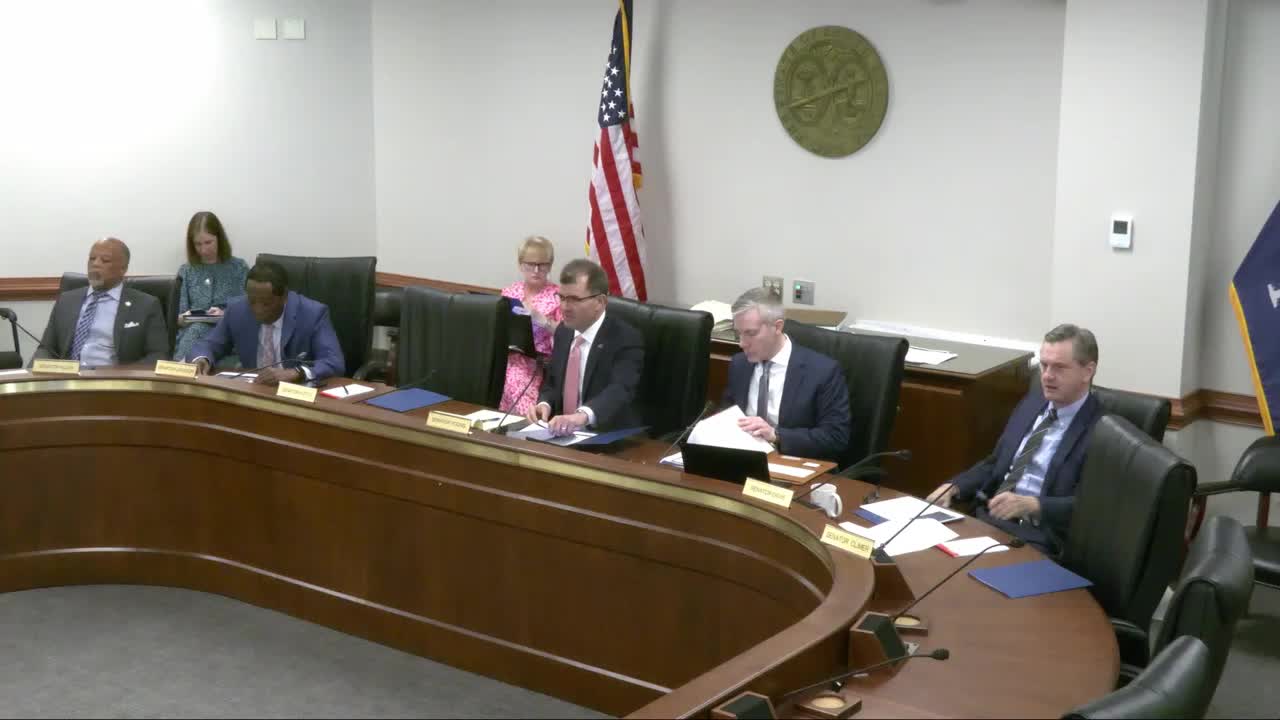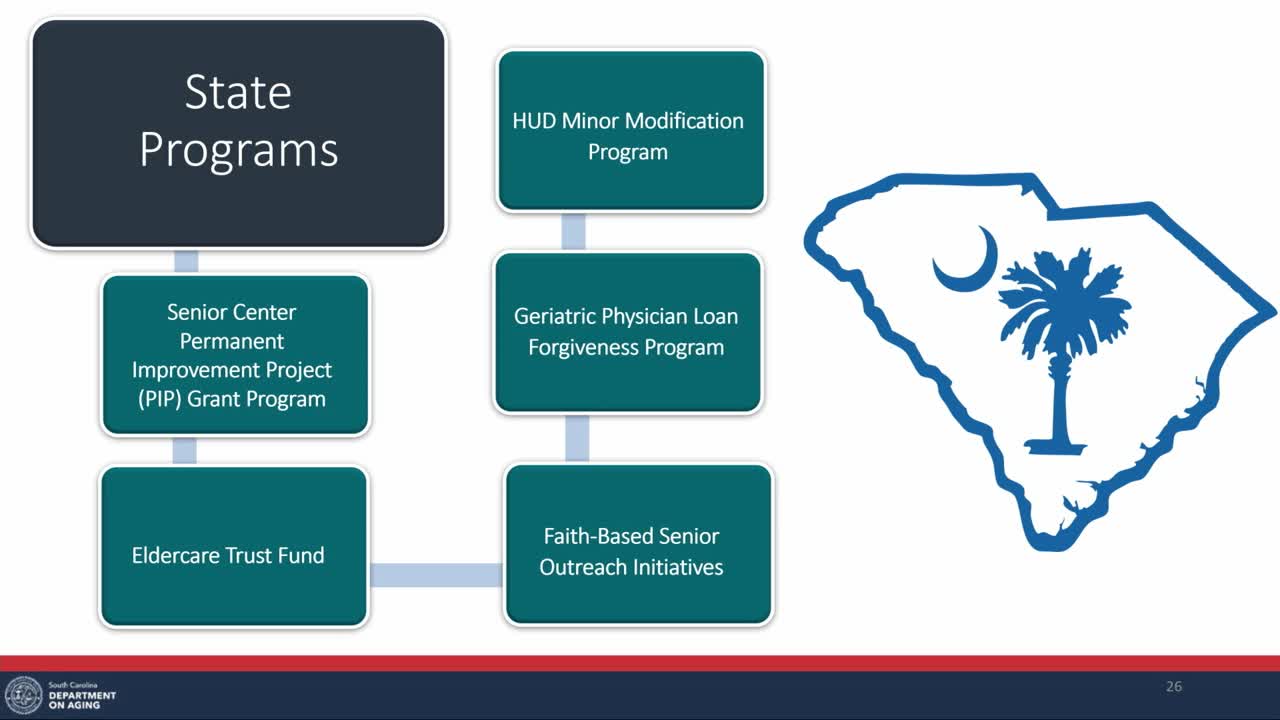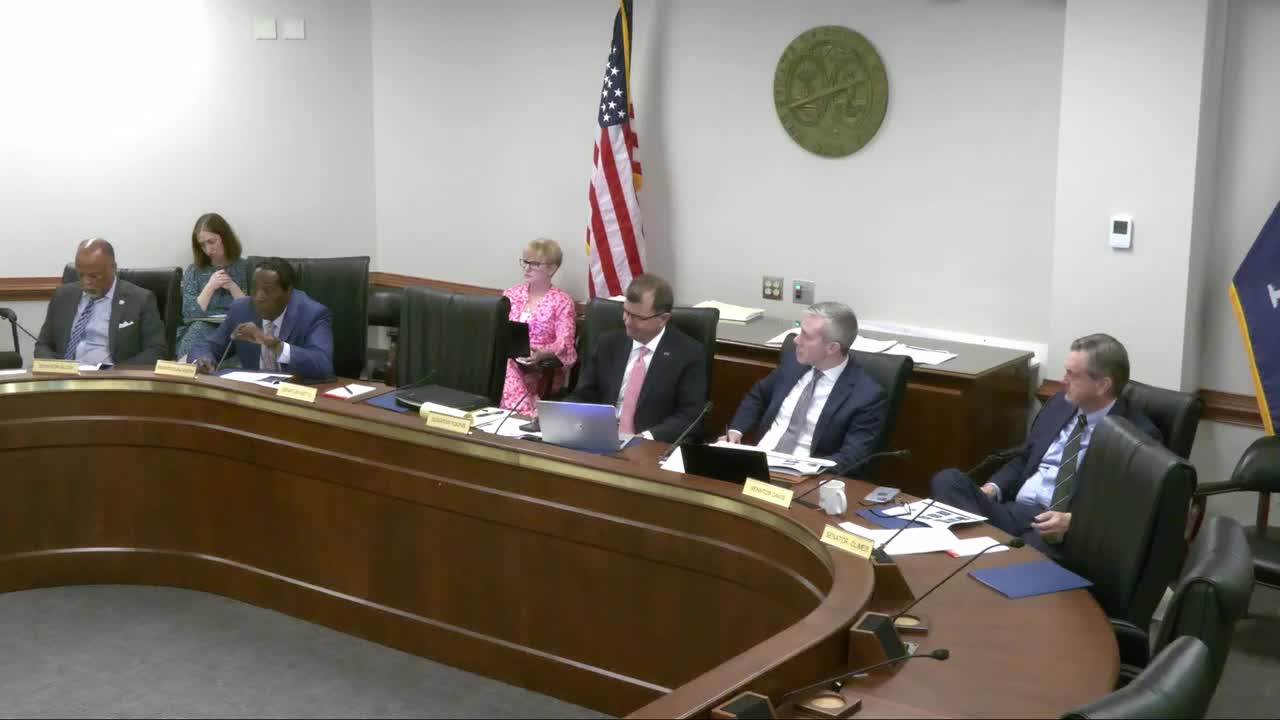Article not found
This article is no longer available. But don't worry—we've gathered other articles that discuss the same topic.

Department on Aging outlines grants, workforce initiatives and online resource hub to senators

State expands home-modification program after HUD grant; department cites $604,000 spent on 30 homes and estimated $13 million saving

